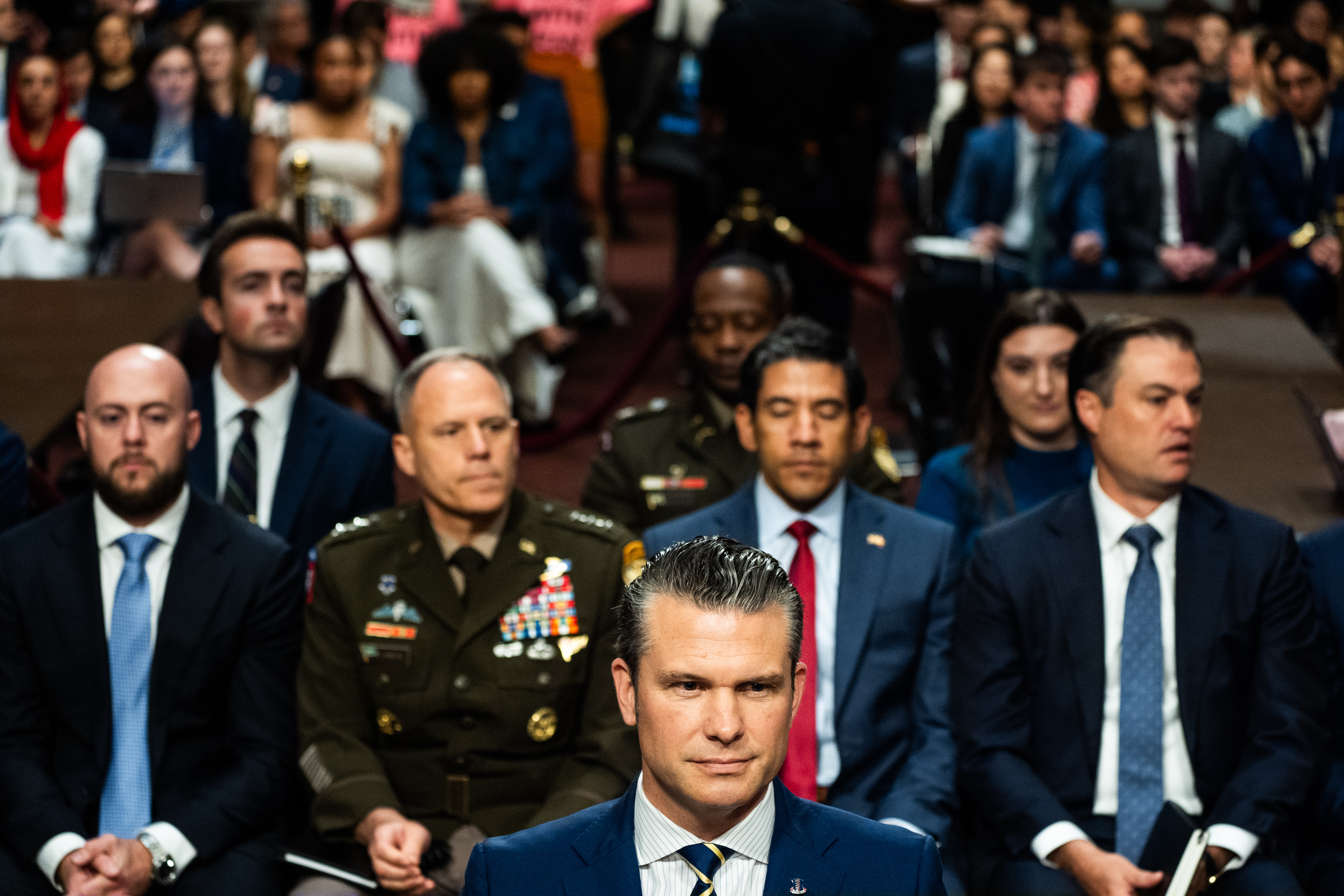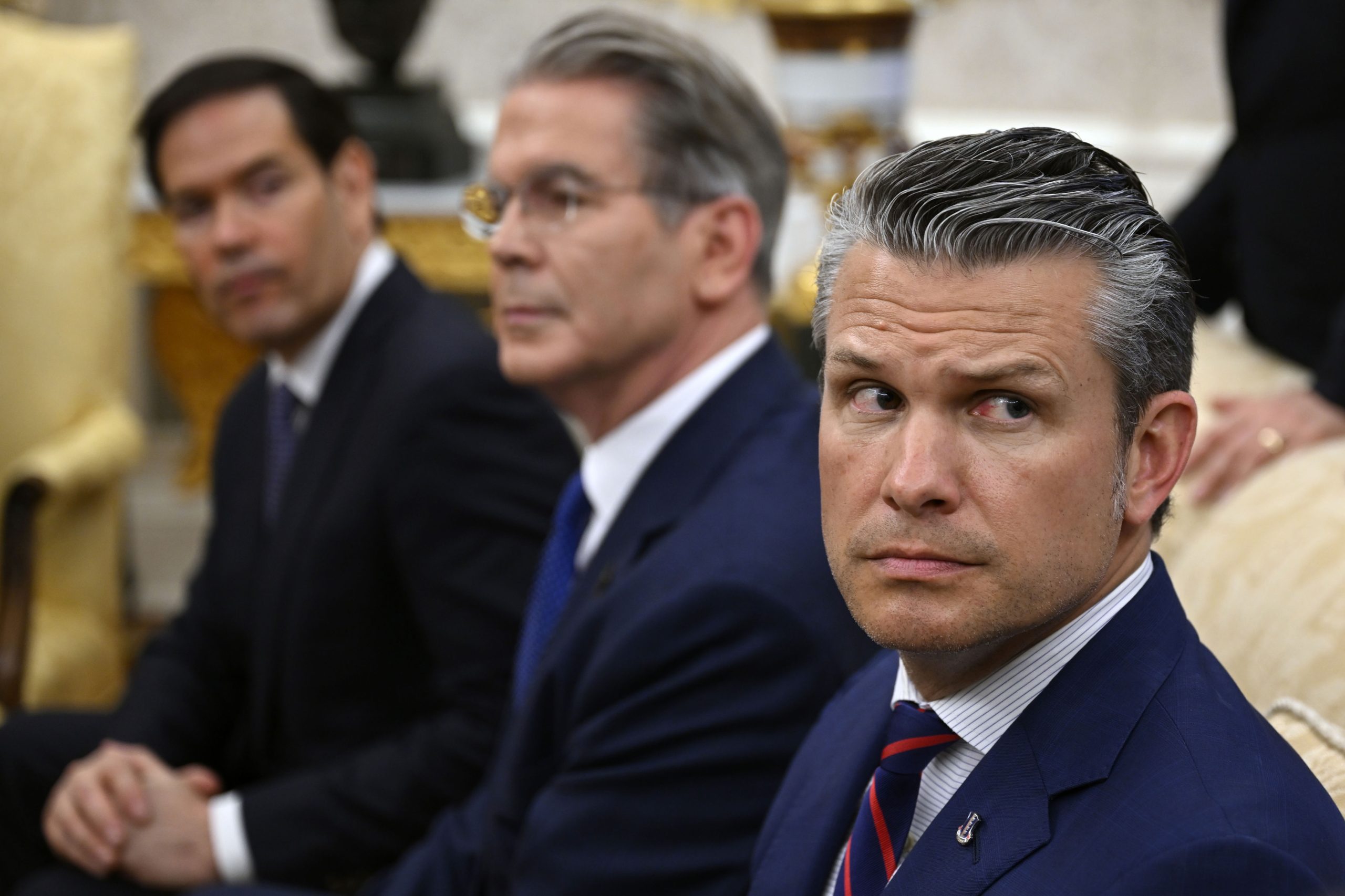The implementation of polygraph tests by Defense Secretary Pete Hegseth to identify individuals leaking information to the media was halted following instructions from the White House. This occurred after a senior advisor to Hegseth expressed concerns to higher-ranking officials about potentially being targeted, according to U.S. officials and others involved in the situation.
Advisor Patrick Weaver expressed his concerns to White House officials this spring, stating that he might soon be ordered by Hegseth or another member of his team to take a lie detector test, according to individuals who are aware of the situation. The idea of this upset Weaver, who is known as an immigration advocate and is considered a dedicated supporter of President Donald Trump within the administration, as well as an associate of White House Deputy Chief of Staff Stephen Miller, officials said, speaking anonymously due to fears of retaliation from the Trump administration.
The White House’s involvement, which has not been previously disclosed, took the form of a phone call from someone connected to the administration after Hegseth’s team started conducting lie detector tests on individuals associated with the defense secretary in April, as reported by sources familiar with the situation, who chose not to reveal the person’s identity.
Prior to being halted, numerous tests were conducted over several weeks with the approval of Hegseth and guidance from Tim Parlatore, who has worked as both Hegseth’s personal lawyer and a part-time military assistant on his team.
Weaver previously worked as a Republican congressional employee and as a helper within the initial Trump administration, specifically on the White House’s National Security Council and in the Department of Homeland Security. He continues to offer guidance to Hegseth.
When he reached the White House, polygraph examinations had already been conducted on individuals from the Joint Service Interagency Advisory Group, a unit within Hegseth’s office tasked with addressing drug cartels and improving security along the southern border, according to sources aware of the situation. The group consists of several Special Operations personnel and officials from various government organizations, including the FBI.
Col. Ricky Buria, a military assistant who Hegseth later appointed as a senior advisor, also underwent a lie detector test and received ambiguous results, according to officials, adetailFirst mentioned by the Guardian. He filed documents to leave the Marine Corps and take a political position in April.
Tests had also been threatened by Hegseth towards others, including two senior military officials: Navy Adm. Christopher Grady, the vice chairman of the Joint Chiefs of Staff, and Army Lt. Gen. Douglas A. Sims, the director of the Joint Staff. Thosethreatswere initially documented by the Wall Street Journal.
Hegseth ultimately chose not to advance Sims to the rank of four-star general, even though there had been an initial intention to do so and after input from Gen. Dan Caine, who serves as the chairman of the Joint Chiefs of Staff, along with other high-ranking officials at the Pentagon, according to individuals aware of the situation.decision, first mentioned by the New York Times on Saturday, has upset several high-ranking officials who believed Sims had remained non-partisan and was deserving of more respect.
The Department of Defense chose not to comment directly on the reports regarding the lie detector examinations.
The Department will not provide any comments on an active investigation,” said spokesman Sean Parnell in a written statement. “The Fake News Media’s fixation on outdated workplace rumors highlights the unfortunate and disgraceful condition of ‘journalism’ in Washington.
Parnell also mentioned that Hegseth is thankful for Sims’s years of dedication. “We hope he succeeds in his upcoming projects,” he stated.
The White House directed inquiries regarding the issue to the Pentagon. Weaver and Buria did not reply to requests for commentary, while Parlatore chose not to provide a statement.

Polygraphs were conducted during a time of significant turmoil within Hegseth’s inner circle, which involved the defense secretary dismissing three high-ranking Pentagon officials in April and alleging they leaked information to the media. The aides—Dan Caldwell, Colin Carroll, and Darin Selnick—denied these allegations and claimed the Pentagon was defaming them. Hegseth’s team has not provided any evidence to support their assertions.
The investigation into the leak started in March following a memo from Joe Kasper, who was Hegseth’s chief of staff, stating that “unauthorized releases of national security information” required a “comprehensive review.”
“The application of polygraphs during this investigation will comply with relevant laws and regulations,” Kasper wrote in theMarch 21 memoThe inquiry would “result in a report for the Secretary of Defense” and “involve a full account of unauthorized releases within the Department of Defense along with suggestions to enhance these initiatives.”
The chaos was worsened just days later by the “Signalgate” affair, in which Hegseth and other high-ranking national security officials talked about an upcoming bombing operation targeting Houthi rebels in Yemen through an unclassified group chat message that accidentally included a writer from the Atlantic magazine.
Hegseth’s involvement in the Signalgate issue has sparked significant controversy, as his description of the strike planning, published on the unclassified app, revealed specific details about the operation prior to its execution.
The administration has consistently stated that no information was classified. However, witnesses later informed the Defense Department’s inspector general’s office during its continuous investigation that the shared operational details were obtained.from a confidential email marked “SECRET/NOFORN,”The disclosure of the information to the public was seen as possibly harmful to national security and should not involve foreign officials.
Kasper left his position as chief of staff in April of his own accord, following extended conflicts within Hegseth’s top leadership team, and transitioned to the private sector while also taking on a part-time role at the Pentagon as a special government employee. During this period, as he filled key positions in his inner circle, Hegseth appointed Buria, Parnell, Weaver, and Justin Fulcher, a staffer who had recently experienced a disagreement with coworkers at the U.S. DOGE Service, as senior advisors.
Fulcher has also left since then., leaving his position just days after a Washington Post article revealed that he joined Hegseth’s team afterleaving a meeting in a rush exiting a meeting abruptly departing a meeting hastily walking out of a meeting suddenly leaving a meeting with anger fleeing a meeting quickly running out of a meeting escaping a meeting abruptly bolting out of a meeting leaving a meeting in hasteWith a DOGE team leader at the Pentagon and asserting that law enforcement had been called to locate him. Hegseth angrily challenged the DOGE leader, Yinon Weiss, who informed others that he had reported Fulcher to another government official at the Pentagon instead of the police.
Fulcher’s behavior had also attracted attention from the White House after he informed coworkers that he was aware of surveillance techniques that could be employed to identify leaks at the Pentagon, according to individuals who are aware of the situation.detailFirst mentioned by the Guardian in June. He was assigned to collaborate with Parlatore on the issue, but officials from the White House and the Pentagon later concluded that Fulcher had overstated his value and the evidence he referenced was not real, according to individuals aware of the situation.
Fulcher and Hegseth’s group stated that his exit from the administration was a shared choice. Some have cast doubt on this, suggesting that it seems he was forced to leave following a loss of confidence from high-ranking officials within the administration.







